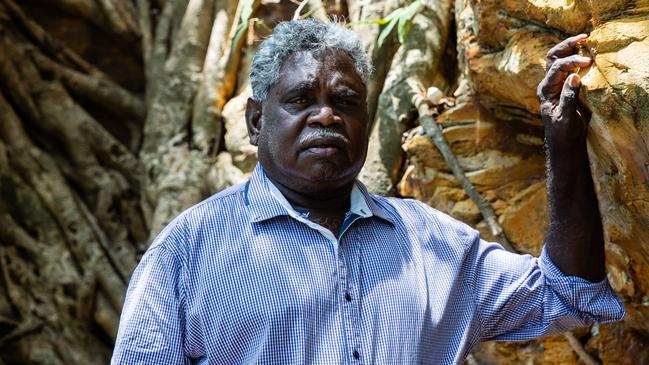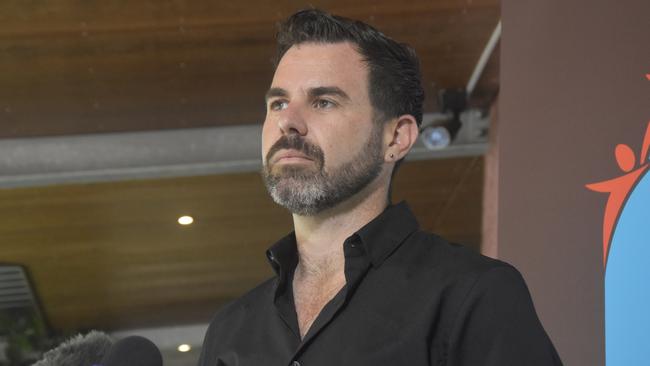NT community courts to return after Sentencing Legislation Bill 2023 passed
Community courts are set to reduce recidivism in the NT by balancing two judicial systems. Read what the changes mean.
Northern Territory
Don't miss out on the headlines from Northern Territory. Followed categories will be added to My News.
Community courts will return to help reduce recidicism and provide a “balanced” justice system.
Mulka MLA Yingiya Guyula said the Sentencing Legislation Amendment Bill 2023, passed on Thursday, would provide a balanced and thoughtful approach to justice for First Nations people.
Mr Guyula said Darwin courts judged First Nations people “through a foreign cultural context”.
“Often the system does not understand why the offender has committed the offence,” he said. “They have no cultural understanding of cultural obligations or responsibilities.
“Sometimes (a) lawyer will manipulate both systems of law, trying to trick the judge that a violent act is a part of Aboriginal law.
“This situation arises when two systems are failing to work together. The translation of laws and concepts are not understood, which creates a space for corruption.”
Mr Guyula said the legislation was the beginning of a conversation between the expert judicial appointees of two cultures.

Mr Guyula said Yolgnu Country justice systems worked with a victim and offender’s clan to reach an agreement where “harmony can be restored”.
“In rare cases someone may be banished from a community, if there is a place for them, because of their offences,” he said.
“The most likely outcome of this justice process now is a compensation agreement of money or goods with materials of ceremony as well as the ceremonial dilly bag that is given to the victim’s family.”

Attorney-General Chansey Paech said he was proud of the changes to the Sentencing Act 1995 and the Youth Justice Act 2005.
Mr Paech said Aboriginal offenders in the Local and Youth Justice Courts may apply to use the community courts where they have pleaded guilty and agreed to the facts of a case.
“The judge will decide if that person should be sentenced in a community court,” he said.
“The judge should be satisfied that the person has cultural ties to the community, and a law and justice group is established in that community.
“The judge will request the law and justice group to prepare an Aboriginal experience report,
which will be considered at the community court hearing.”
The NT government’s 2023-24 budget provides for six sites to be supported over the next two years.

The change is one of 48 actions that aim to reduce incarceration rates and engage Aboriginal leadership, listed in the NT Aboriginal Justice Agreement.
The Agreement called for pre-sentencing reports to be prepared for Aboriginal offenders before a community court to identify the root causes of an individual’s behaviour and assist in handing down rehabilitative sentences.
Charles Darwin University senior law lecturer Susan Bird said community courts were previously removed by the Howard government during the NT intervention, which undermined many people’s trust in government.
“Reintroducing community courts can help begin to rebuild trust between communities and government,” Dr Bird said.
“I am not from a First Nations background, but see the community courts as one way of increasing self-determination.
“First Nations Peoples need to be involved in decisions that directly impact them, otherwise they will be ineffective.”
Dr Bird said many studies suggested incarceration did not reduce recidivism and could have the opposite effect.
“Alternatives to prison are desperately needed. Community courts are one alternative which holds great potential,” she said.
“Culturally-appropriate and local responses to crime are in my opinion more likely to reduce recidivism than increased sentences.”




